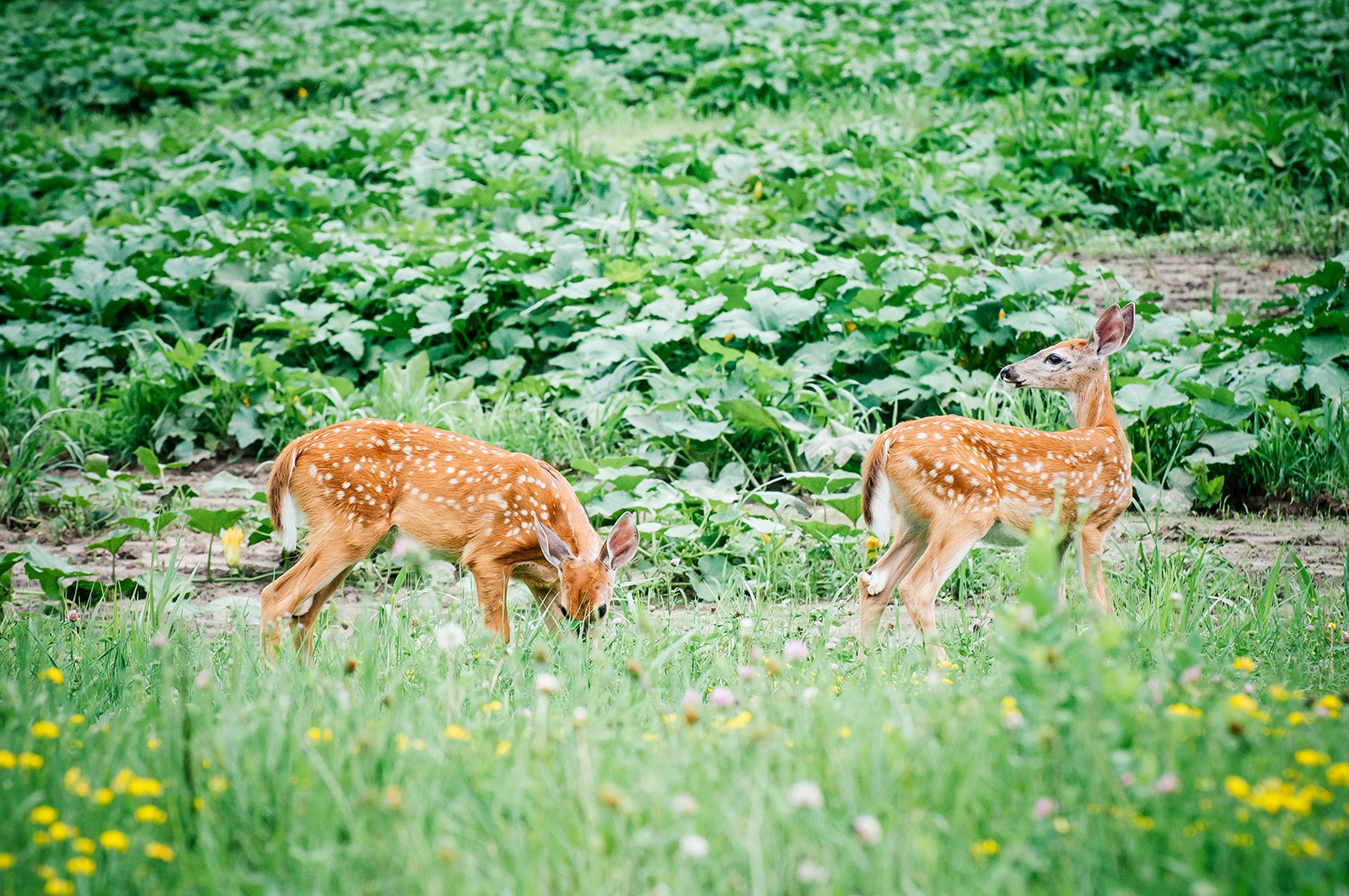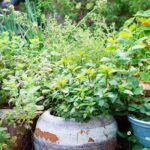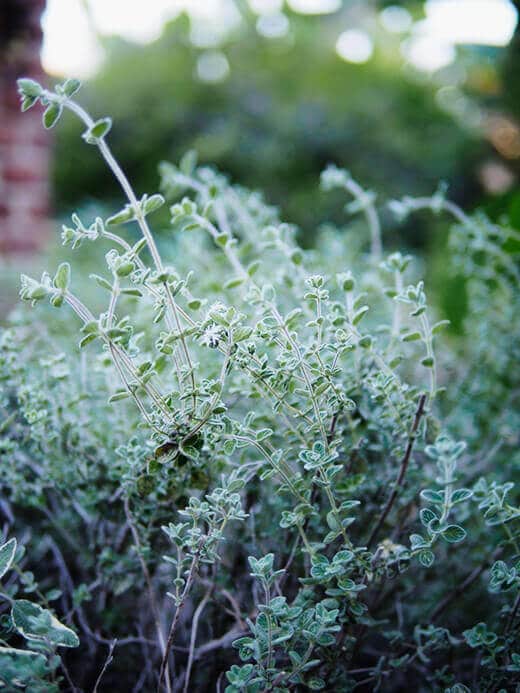Gardening enthusiasts often seek the beauty of lush, blooming landscapes without the worry of wildlife interference. Deer-resistant plants and flowers offer a solution, allowing you to create an inviting garden space that’s less likely to be ravaged by these graceful, yet often garden-destructive creatures.
Finding the right balance of aesthetics and practicality can be a challenge, but with 200+ deer-resistant plants and flowers to fawn over, the opportunities for designing a deer-deterrent garden are abundant. From the vibrant hues of annuals to the enduring beauty of perennials, there’s no need to sacrifice color and variety for durability against deer.
How do deer-resistant plants work?
Understanding the mechanism behind deer-resistant plants is crucial for any gardener. These plants possess certain characteristics that make them unattractive to deer. Traits such as bitter flavors, strong smells, or coarse textures naturally deter deer, who are typically inclined to seek out more palatable and tender options for foraging.
Plants like peonies and rosemary give off scents that deer find off-putting, while others, like lavender and lamb’s ears, offer textures that don’t appeal to a deer’s palate. Incorporating these plants into your garden can create a natural barrier against these animals, who will likely move on to more favorable feeding grounds.
Interplanting with deer-resistant varieties and using repellents can also enhance your garden’s defenses. Remember, though, in times of scarcity, even the most resistant plants may face browsing. Hence, it’s wise to protect young, vulnerable transplants with additional measures.
What are the benefits of using deer-resistant annuals?
When it comes to annuals that resist deer, there’s an array of benefits. These one-season wonders can fill your garden with instant color and vibrancy. Plants such as salvia, flowering tobacco, canna lilies, and snapdragons not only thrive in a variety of conditions but also keep deer at bay due to their aromas or toxic properties.
Moreover, many deer-resistant annuals are easy to grow from seed and can attract beneficial pollinators to your garden. These plants require less maintenance in terms of fencing and chemical deterrents, offering a more natural approach to keeping deer out.
Annuals can also provide gardeners the flexibility to change the color scheme or plant arrangement each year, ensuring that your garden remains a dynamic and inviting space without the worry of deer damage.
Which perennial flowers are most effective against deer?
The resilience of perennial flowers makes them a cornerstone in the fight against deer. Varieties such as lavender, iris, coneflower, yarrow, and black-eyed Susan are naturally equipped to repel deer.
Opting for perennials means you’ll have a garden that’s not only resistant to deer but also lower maintenance, as these plants return year after year. This reduces the need for replanting and can lead to a more established and robust garden over time.
Other top choices like poppy, milkweed, and catmint not only provide deer resistance but also support a healthy ecosystem by attracting pollinators. These plants can be the building blocks of a flourishing garden that coexists with nature rather than being at its mercy.
Before delving into more about deer-resistant gardens, let’s take a moment to watch a video that provides valuable insights and visuals. Explore how to protect your garden with these expert tips!
How can you create a deer-resistant garden?
Creating a deer-resistant garden involves more than just selecting the right plants. It’s about designing a comprehensive strategy that includes plant selection, placement, and additional deterrents.
Integrating a variety of deer-resistant plants can create a layered effect that serves as a buffer. Consider using shrubs and larger plants as the outermost layer, with delicate annuals and perennials shielded within.
Effective garden strategies may also involve the use of visual or scent-based repellents to reinforce the idea that your garden is not a welcoming place for deer.
Moreover, ensuring that your garden has a diversity of plants can help minimize the impact should deer decide to browse. The key is to maintain the beauty of your garden while reducing the likelihood of deer damage.
What deer-resistant shrubs are recommended?
When it comes to adding structure to your garden, choosing deer-resistant shrubs can provide both aesthetic appeal and a natural deterrent to deer. Shrubs like boxwood, barberry, and lilac not only offer beautiful foliage and blooms but also are generally avoided by deer.
These plants often have dense growth, making them less accessible for deer to nibble on. Plus, the variety of textures and smells they bring to the garden can act as an additional line of defense.
Shrubs can serve as the backbone of your garden, with the ability to shape the overall design while offering protection to more delicate plants nestled within their branches.
Where to find more information about deer-resistant plants?
If you’re looking for additional information and inspiration for your deer-resistant garden, there are numerous resources available. From local garden centers and nurseries to online databases, the knowledge you need is at your fingertips.
Experts at these centers can provide advice tailored to your region’s specific flora and fauna challenges. Online forums and gardening groups are also valuable for exchanging tips with fellow gardeners.
Books and publications dedicated to deer-resistant gardening can be another resource, offering in-depth guides on plant selection and garden design strategies.
What are the best strategies to keep deer out of your garden?
While incorporating deer-resistant plants is a key strategy, it’s also important to take a holistic approach to wildlife management. This could include fencing, especially for young plants that are more susceptible to damage.
Using a combination of physical barriers and sensory deterrents like motion-activated sprinklers, or natural repellents can enhance your garden’s defenses.
A well-thought-out planting strategy, such as avoiding plants known to be deer favorites, can also be beneficial in keeping deer at bay. Remember, diversity in plant selection can lead to a more resilient garden overall.
Questions related to deer-resistant gardening
What are the most deer-resistant flowering plants?
Among the vast array of flowering plants, some of the most deer-resistant include varieties like peonies, bearded irises, and marigolds. These plants have natural properties that deer find unappealing, making them excellent choices for a garden frequented by these animals.
Foxglove and lamb’s ear are also known for their deer resistance, sporting unique textures and toxic traits that deter deer from snacking on them.
Are there any flowers that deer and rabbits won’t eat?
While no plant is completely immune to wildlife, certain flowers like snapdragons, daffodils, and lavender are known to be resistant to both deer and rabbits. These species either have strong scents or are toxic to these animals, making them less likely to be eaten.
Integrating such flowers into your garden can provide a dual layer of protection, ensuring that both deer and rabbits look elsewhere for their meals.
What is the best ground cover that deer won’t eat?
For ground cover that tends to be unappetizing to deer, consider plants like ajuga, also known as bugleweed, or sedum. These ground-hugging plants spread to form a dense mat that deer generally avoid.
Periwinkle and lamium are also effective as deer-resistant ground covers, offering both coverage and a splash of color with their flowers.
What smell do deer absolutely hate to eat?
Deer are known to have a strong dislike for certain scents, especially those emitted by plants like garlic, chives, and anything with a strong, pungent odor. Planting these around your garden can serve as a natural olfactory barrier.
Herbs such as mint, oregano, and thyme also release scents that deer tend to avoid, making them excellent companion plants for a deer-resistant garden.
By integrating these insights, tips, and strategies into your gardening practices, you can create a serene and stunning garden space that remains largely untouched by deer. The combination of the right plants, designs, and deterrent methods will enable you to enjoy the fruits of your labor without unwelcome wildlife interference.







